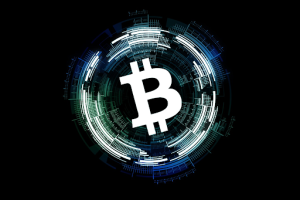
- Dominik Schiener, IOTA’s chief, discussed the platform’s efforts to digitize real-world assets highlighting the importance of TLIP technology in this endeavor.
- IOTA TLIP technology represents a significant milestone in the realm of Distributed Ledger Technology (DLT) and could redefine how global trade operates.
The IOTA Foundation has been actively working towards the tokenization of real-world Assets (RWA) as well as transforming global trade by leveraging its own TLIP technology for transparent and secure data transfers. To digitize trade, IOTA has also been working with some of the top institutions like the Global Alliance and the World Economic Forum (WEF).
In a conversation at the Binance suhoor Session, IOTA chief Dominik Schiener shared how IOTA is making efforts to digitize real-world assets.
Unleashing a Revolution: IOTA’s TLIP Agreement Could Transform Global Trade Forever! Buckle up for a game-changing journey as #IOTA ventures to conquer the trillion-dollar RWA market!
3 Days ago, during the #Binance Suhoor Session, @DomSchiener shared an exclusive alpha… pic.twitter.com/KAYa4op4dB
— Marcel Knobloch aka Collin Brown (@CollinBrownXRP) April 9, 2024
Let’s take a look into how IOTA’s TLIP technology plays a crucial role in contributing to IOTA’s asset tokenization plan.
In a significant development for the IOTA community, the recent announcement of the Trade Ledger Infrastructure Project (TLIP) signals more than just a major milestone; it could herald a transformative shift in how individuals outside the cryptocurrency realm perceive the applications of Distributed Ledger Technology (DLT).
The foundation of global trade has long relied on paper-based systems that have seen minimal evolution over the past century. TLIP, in conjunction with IOTA, has the potential to establish a new standard that streamlines the operations of the supply chain and logistics industries in the years to come, per the Crypto News Flash report.
UK’s ETDA Sparks Digital Trade: Implications for IOTA and NFT Adoption?
This evolution begins with legislative changes. In September 2023, the UK Government enacted the Electronic Trade Documents Act (ETDA), a groundbreaking move that grants digital trade documentation equal legal standing to its paper counterparts for the first time in history. The implications of this legislation are profound.
Given that UK law governs approximately 70% of international trade, the ETDA’s provisions mean that a digital document now holds the same legal validity as a physical one, provided it remains immutable and tamper-proof. Additionally, the law mandates that electronic documents must possess a verifiable provenance history and enable electronic ownership transfers—in essence, requiring them to be Non-Fungible Tokens (NFTs).
With each consignment in the global trade system necessitating its own NFT, there arises a need for a DLT solution capable of offering low-cost or feeless transactions, coupled with extensive Smart Contract functionality on a large scale. Even in the absence of transaction fees, the demand for IOTA to underpin these NFTs is expected to be substantial.
IOTA emerges as an ideal solution for this scenario, where consignments consist of products, each possessing its Digital Product Passport. These passports encompass assemblies and sub-components, each with its unique Digital Identity. The capability of IOTA to enable an NFT to possess or manage other NFTs, each with its distinct history and provenance, aligns perfectly with this framework.
The IOTA price has been recently on the uptrend gaining 5% over the past week. At press time, IOTA is trading 1.2% up at a price of $0.3189 and a market cap of $1.023 billion. Also, the daily trading volume has surged by 66% to $22 million.























